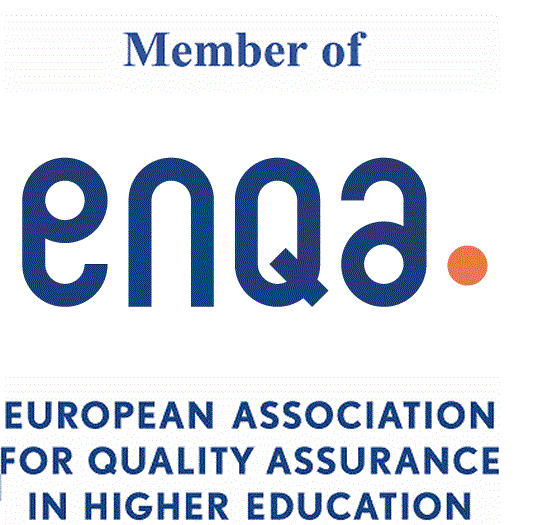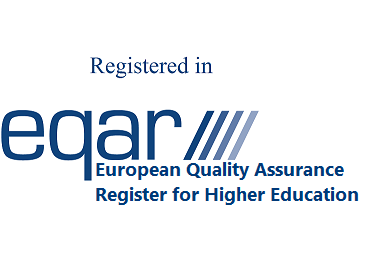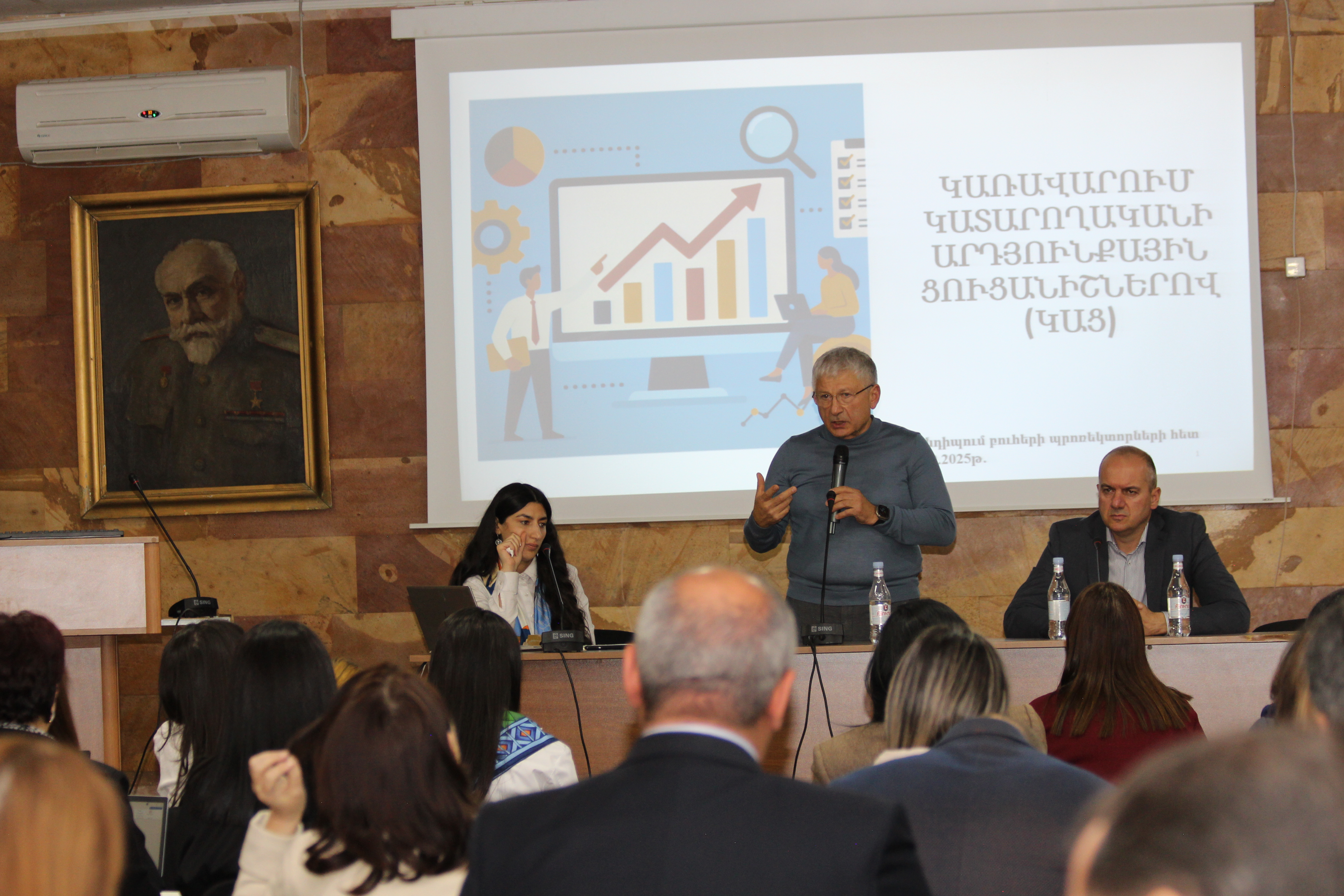On October 31, at ANQA’s initiative, a meeting was held with HEI vice-rectors to explore new approaches to the development and application of KPIs for higher education institutions. The discussions focused on the principle that state funding for HEIs should be outcome-based, reflecting the actual effectiveness of education quality, governance and strategic development.
Ruben Topchyan, ANQA’s director, stated that the newly adopted Law on Higher Education and Science envisages a KPI-driven approach to HEI funding. The model, adopted by leading countries in the European Education Area, helps make the education system more transparent, accountable, and strategically managed.
Meanwhile, Ruben Topchyan highlighted that the KPIs should go beyond data collection to foster strategic thinking. The KPIs will enable the assessment of learning outcomes, the effectiveness of governance processes and HEIs’ contribution to the socio-economic development of the country.
The development of KPIs is carried out as part of the Erasmus+ KPI4HE project, coordinated by the Yerevan State University. The KPIs will soon be piloted at the HEIs involved in the project. The meeting aimed to discuss the feasibility and broader applicability of the project-selected KPIs, involving representatives from all HEIs, given that the KPI system will cover the entire higher education sector in the future.
Anahit Terteryan, specialist at ANQA’s Institutional and Programme Accreditation Division, outlined the six key areas for data collection to be addressed as part of the KPI4HE project: human resource development, collaboration development, ensurance of equal opportunities, quality of the learning environment, management effectiveness, research and innovation. As part of the KPI4HE project, the KPIs are currently piloted in two key areas — human resource development and management effectiveness — chosen based on proven European models.
The participants also examined mapping of the labour market needs, alumni employment, modernisation of academic programmes and student capacity building. The participants emphasised the need for a unified methodology to evaluate HEI effectiveness. It was highlighted that the development of the KPIs should be regarded as a tool for enhancing the education system, rather than an administrative obligation. The HEIs’ active participation, the implementation of recommendations and transparent, evidence-based data analysis will help establish a stable and robust funding system designed to enhance the education quality and strengthen the country's human capital.



